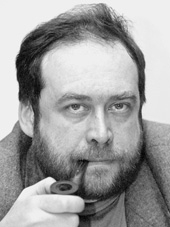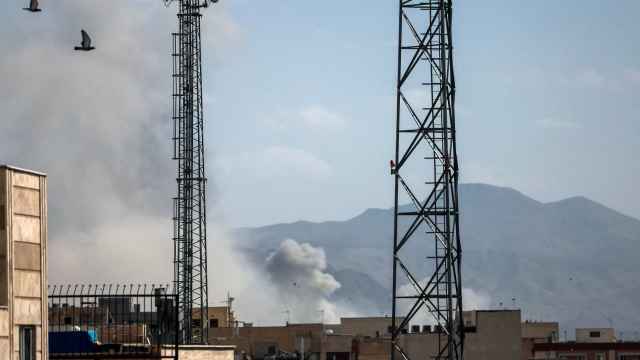 Alexei Pankin
Alexei Pankin
About two years ago, one of the directors of Georgian Public Broadcaster told me that the concept for public television in Georgia was developed with the participation of leading European experts. "We based it on the BBC model," he said, "and enriched it with our Georgian experience. All of the management meetings are held in a room with transparent walls, making it impossible for anyone to put pressure on us," he said.
That conversation took place while I was in Georgia visiting a local poet and intellectual who also owns a plantation. Inspired by President Mikheil Saakashvili's call to develop entrepreneurship in the country, this fellow borrowed money to buy land in the fertile Alazansky Valley where he planted peaches and some special varieties of American corn that the president had personally recommended.
I recently returned to Georgia. Georgian democrats are once again working on a bill that will make the country's public television fully independent.
Coincidentally, Russian public television was recently launched in Moscow, and the story of how it began resembles an attempted palace coup from the 18th or 19th century.
Presidential human rights council head Mikhail Fedotov told journalists that 20 years ago, he bet a case of champagne that public television would appear in Russia in his lifetime. Fedotov, who was the first to propose the creation of public broadcasting, saw a window of opportunity to win that bet when confusion broke out among the ruling elite. The conservative faction among the family members of former President Boris Yeltsin, with then-Prime Minister Vladimir Putin at their head, had already decided to retake power, but the liberal faction rallied around then-President Dmitry Medvedev who still occupied the Kremlin. And then tens of thousands of protesting Muscovites took to the streets.
In his final presidential address in December 2011, Medvedev ordered officials to develop a concept for public broadcasting within three months. Members of the presidential human rights council took an active role in that task. Physically, they might have been sitting in the Kremlin, but their hearts were out on the street with the protesters on Bolotnaya Ploshchad. Medvedev signed the decree establishing public television in April. As president, Medvedev had the authority to commit staff and funding for the project. Many observers feared that something like the liberal Ekho Moskvy radio station would soon appear on television screens across the country.
But Russians spoke up during the election. Frightened by the spectacle of freedom-loving Muscovites protesting en masse, the rest of Russia triumphantly re-elected Putin to a third presidential term. Medvedev was made a lame duck and did not dare to appoint his own people to head the new public television system.
Putin appointed Russia's most authoritative television professional, 75-year-old Anatoly Lysenko, as CEO of the station, and Oleg Tabakov, the popular and much-loved 77-year-old actor, as head of the board of directors.
Russian public television first aired on May 19 and was immediately lambasted by the liberal media. After the first week of broadcasts, critics complained that in place of a vigorous discussion of the "crimes of the bloody regime," they were reminded that life in Russia was not so bad after all.
I am not worried about the fate of Russian public television. Lysenko and his seasoned team of professionals could not produce bad television programming if they tried. It is only a matter of time before Russia has a good public television station that will satisfy any intelligent viewer that does not have an axe to grind.
Alexei Pankin is the editor of WAN-IFRA-GIPP Magazine for publishing business professionals.
A Message from The Moscow Times:
Dear readers,
We are facing unprecedented challenges. Russia's Prosecutor General's Office has designated The Moscow Times as an "undesirable" organization, criminalizing our work and putting our staff at risk of prosecution. This follows our earlier unjust labeling as a "foreign agent."
These actions are direct attempts to silence independent journalism in Russia. The authorities claim our work "discredits the decisions of the Russian leadership." We see things differently: we strive to provide accurate, unbiased reporting on Russia.
We, the journalists of The Moscow Times, refuse to be silenced. But to continue our work, we need your help.
Your support, no matter how small, makes a world of difference. If you can, please support us monthly starting from just $2. It's quick to set up, and every contribution makes a significant impact.
By supporting The Moscow Times, you're defending open, independent journalism in the face of repression. Thank you for standing with us.
Remind me later.





